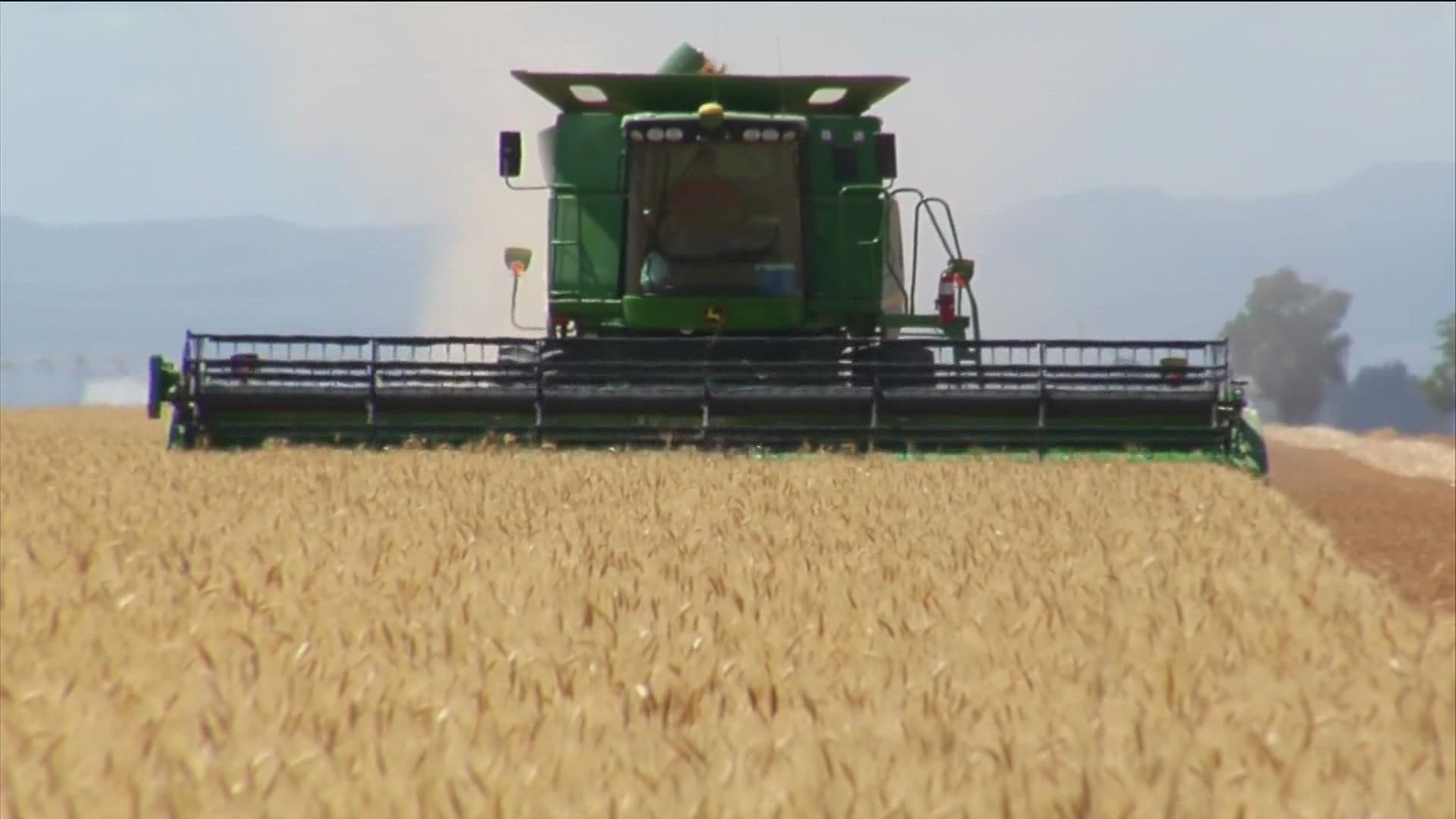MOSCOW, Idaho — The University of Idaho's College of Agricultural and Life Sciences is set to receive up to $55 million from the U.S. Department of Agriculture to help the state's farmers and ranchers adopt practices to combat climate change, the university announced Wednesday.
The award is twice as large as any prior University of Idaho grant. The five-year grant will be used to support research on building cropping systems that are more resilient to climate change. Also, the grant "stimulates Idaho's economy by paying more than half of the funds directly to Idaho agricultural producers," the university said in a news release.
Farmers and ranchers will be eligible for payments to try "climate-smart practices" such as reducing reliance on tillage, a practice that helps soil hold carbon, and cover cropping -- raising crops primarily for soil health benefits. The grant will drive those and other practices on about 10% of Idaho's active cropland, and will directly benefit more than 100 farmers and ranchers, the university said.
"It will provide a stiped for them that will offset some of the costs of getting started with some of these conservation management techniques, some of which require quite a large start-up in terms of equipment," Jodi Johnson-Maynard, head of the U of I Department of Soil and Water said.
"University of Idaho is the land-grant institution for the state. Our charter and our mission are just about that," Department of Entomology professor Sanford Eigenbrode said. "Not just being a university separated from society, but we serve it."
Research will focus on potatoes, beef, sugar, wheat, barley, hops and chickpeas.
Jodi Johnson-Maynard is leading the project with co-principal investigator, Sanford Eigenbrode.
The U of I's "Climate-Smart Commodities for Idaho: A Public-Private-Tribal Partnership" is among 70 projects around the nation to be awarded a share of $2.8 billion included in the first pool of funding for the USDA's Partnerships for Climate-Smart Commodities program.
"We have been doing research on climate-smart practices in agriculture for 10 years," Eigenbrode said. "But we still have to fine-tune these systems so they maximize their profitability and effectiveness at mitigating gas emissions and maximizing profitability and soil health. So there's still think to learn."
Other partners include the Coeur d'Alene and Nez Perce tribes, the Idaho Association of Soil Conservation Districts, Salmon Safe, The Nature Conservancy Idaho Chapter, The Wave Foundation, Desert Mountain Grassfed Beef and Kooskooskie Fish, LLC.
"Adapting to climate change, we've been engaged in looking at different agricultural systems that deal with climate variability to a greater extent," Johnson-Maynard said. "Then mitigating those greenhouse gas emissions. So we'll be looking at both, how our systems are responding and how might they become better-suited for future conditions as well as how they are helping to limit the amount of greenhouse gasses released into the atmosphere."
The university is looking for farmers who are interested in enrolling. Interested farmers can reach out to their local water conservation district officer, or contact U of I's College of Agricultural & Life Sciences.
Watch more Local News:
See the latest news from around the Treasure Valley and the Gem State in our YouTube playlist:

